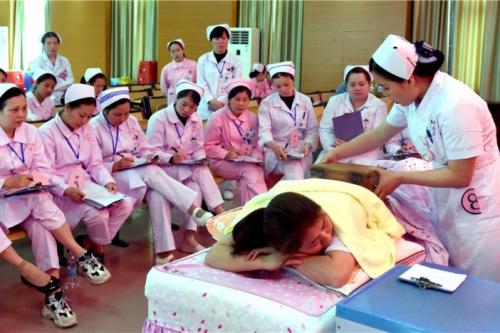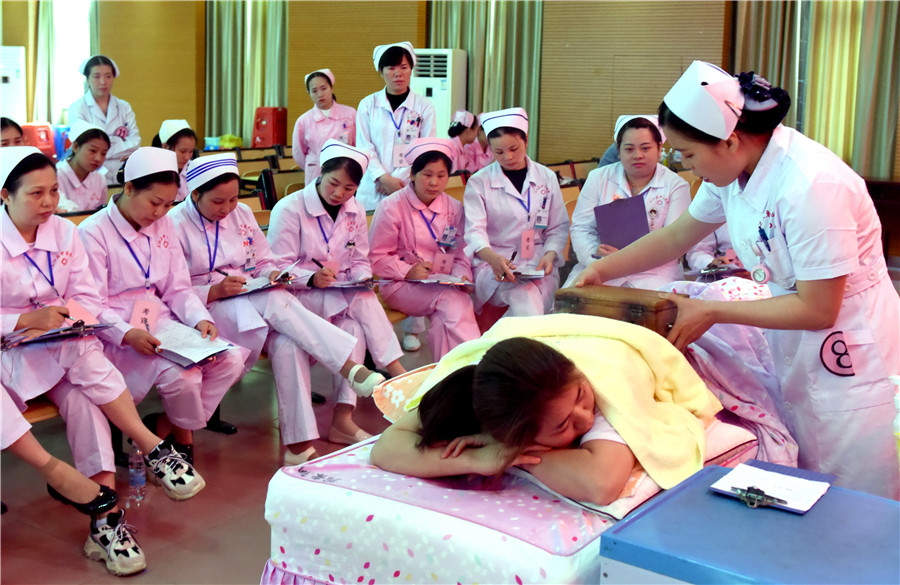




Health authorities will redouble their efforts to train nurses in eldercare as the proportion of older people in the population expands and tens of millions of people struggle with disabilities, a senior health official said on Wednesday.
Jiao Yahui, deputy chief of medical administration and supervision at the National Health Commission, said there are not enough nurses to cope with the growing needs of the country's elderly.
A regulation on the training of healthcare workers and standards of service is being drafted. It is expected to boost the number of nurse's aides, Jiao said ahead of International Nurses Day on Sunday.
The nurse's aides will complement the work of full-fledged nurses to meet the demand for services for the elderly, she said.
The number of registered nurses in China topped 4 million as of the end of last year. Nearly 70 percent held a junior college degree or above, accounting for almost half of all healthcare professionals, she said.
Last year, there were 150 million people 60 years or above living with chronic diseases in China. Of those, 44 million were fully or partially disabled and in need of regular nursing services, she said.
"With more nurses and nurse's aides, the demand for nursing services from the elderly will be gradually met," she said.
The commission will also encourage community health centers to provide more nursing services for the elderly in neighborhoods, Jiao said. They would include more beds and setting up day-care centers.
Regulations will also be released to encourage community health centers to provide beds to the elderly at home, so family doctors can provide treatment there, she said.
"The disabled, whether fully or partial, will be the priority in nursing services," Jiao said. "We will release a detailed standard for evaluating nursing services for the disabled elderly population, including psychological needs, so the services will aim precisely at those most in need," she said.
Xi Huan, vice-president of Beijing Hospital, said major medical institutions need to make more efforts to improve services for the elderly, including the promotion of disease prevention education and increased follow-up visits for elderly patients who have been discharged from the hospital.
"Big hospitals should provide more help for elderly patients, and more follow-up nursing services after they leave the hospital, so they can get timely help if problems occur at home or at community health centers," he said.
If you have any problems with this article, please contact us at app@chinadaily.com.cn and we'll immediately get back to you.